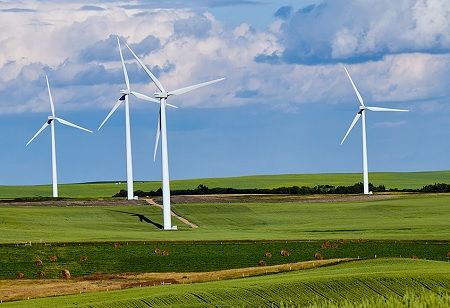
India Places 63rd in Energy Transition Index, with Sweden Leading: WEF

 India has achieved a notable milestone in the global energy landscape, as highlighted by the recent Energy Transition Index (ETI) released by the World Economic Forum (WEF). Ranked 63rd globally, India's progress is commendable across key dimensions of energy equity, security, and sustainability. This improvement underscores India's efforts to enhance its energy infrastructure and transition towards more sustainable practices.
India has achieved a notable milestone in the global energy landscape, as highlighted by the recent Energy Transition Index (ETI) released by the World Economic Forum (WEF). Ranked 63rd globally, India's progress is commendable across key dimensions of energy equity, security, and sustainability. This improvement underscores India's efforts to enhance its energy infrastructure and transition towards more sustainable practices.
The WEF report positions Sweden at the top of the index, followed closely by other European nations such as Denmark, Finland, Switzerland, and France. These countries are recognized for their robust energy policies and significant strides in renewable energy adoption. In contrast, India's ranking reflects its ongoing journey towards optimizing energy resources while balancing the demands of a rapidly growing economy and population.
Among other developing nations, China stands out at the 20th position, showcasing substantial advancements in renewable energy deployment and energy security initiatives. The report underscores that these two populous nations, China and India, with their vast populations and burgeoning economies, will play pivotal roles in shaping global energy transitions in the coming years.
India's progress in clean energy infrastructure is particularly noteworthy, with renewable sources and biomass contributing significantly to its power generation capacity. Currently, India ranks as the fourth-largest renewables market worldwide, driven by substantial investments exceeding USD 10 billion annually. Initiatives like promoting electric vehicles (EVs) and advancing green hydrogen production highlight India's commitment to reducing dependency on fossil fuels and embracing sustainable energy solutions.
However, challenges persist, notably India's continued reliance on coal, which significantly impacts its emission intensity. The country's per capita emissions, at 1.7 tonnes of CO2, are notably lower than the global average, indicating early strides in decoupling economic growth from energy demand. Nevertheless, achieving further reductions requires continued investment in energy efficiency and transformative policies that support sustainable development across sectors.
The WEF report also underscores the broader global context of energy transition, noting a slowdown in progress amidst increasing global uncertainties. While many countries have made strides in enhancing their energy systems over the past decade, the overall pace has faltered, highlighting the complexities of balancing equity, security, and sustainability in energy policies.
In response to these challenges, the WEF advocates for innovative solutions and policy interventions that can accelerate the adoption of sustainable energy practices globally. It emphasizes the role of countries like India and China in driving innovation and scaling up renewable energy technologies, potentially leading global efforts in green tech manufacturing.
India's focus on leveraging energy for income generation and supporting microenterprises through renewable energy initiatives demonstrates a holistic approach towards sustainable development. The emphasis on affordability and economic viability of clean energy solutions underscores India's commitment to inclusive growth and environmental stewardship.